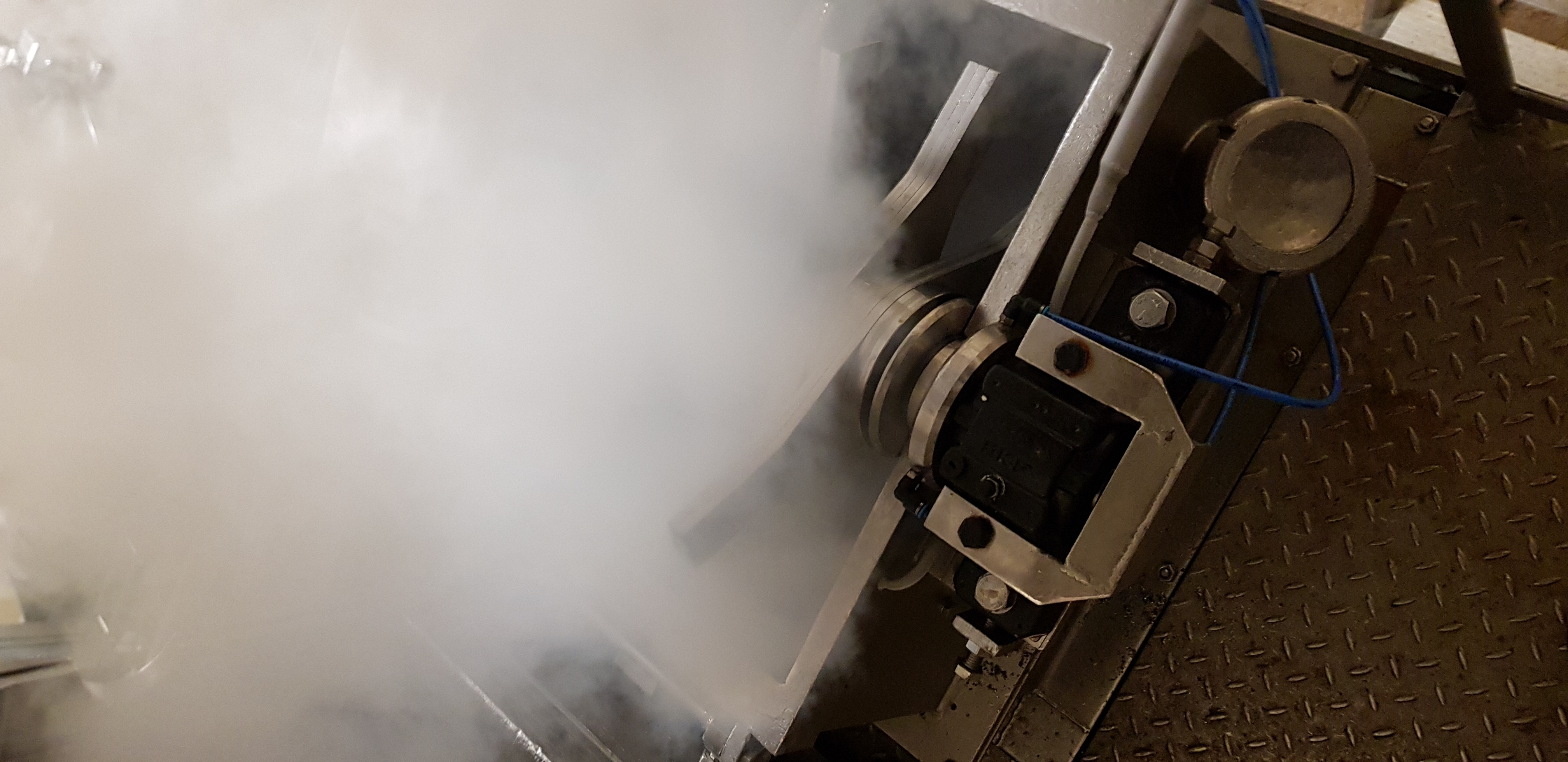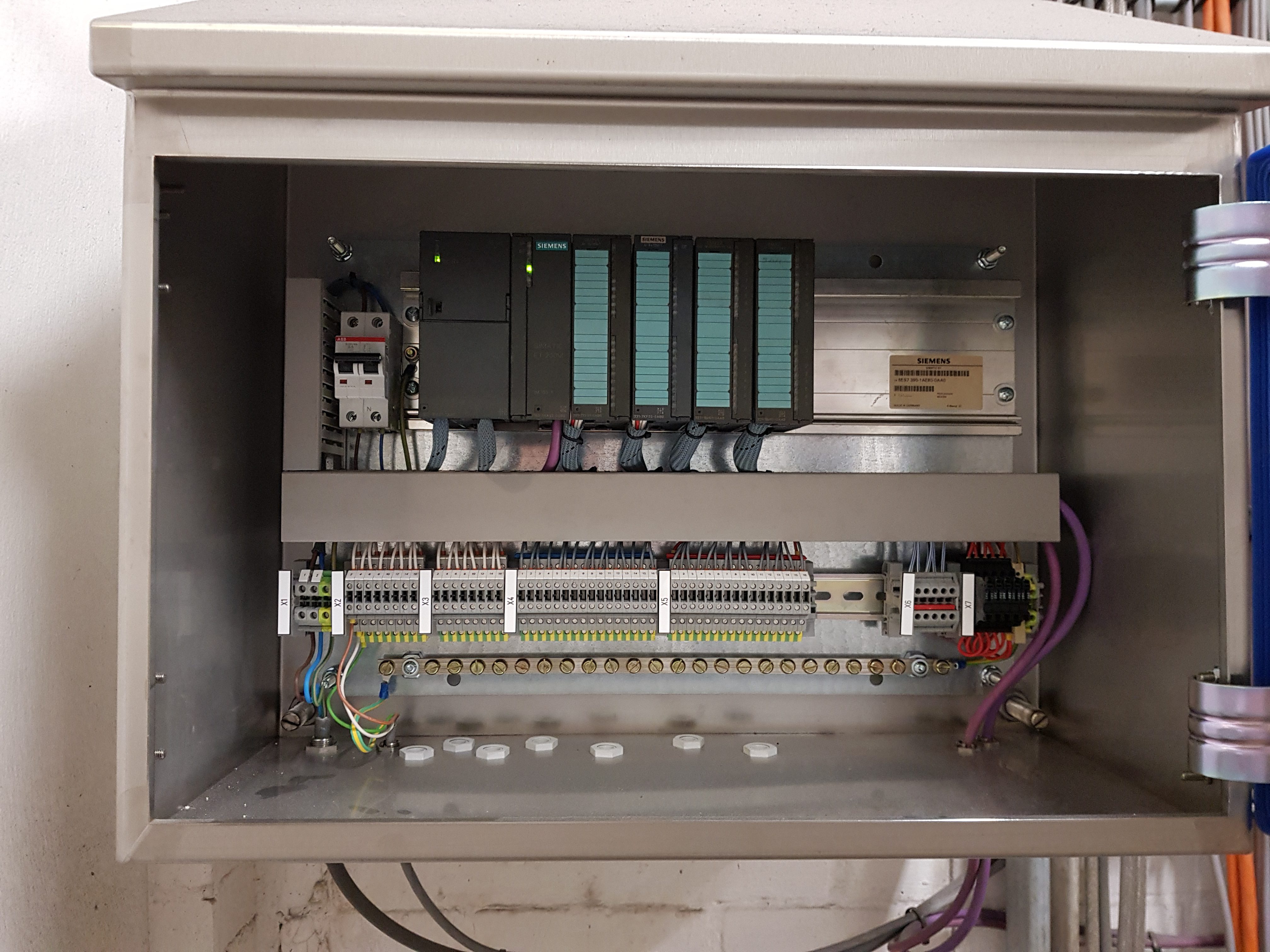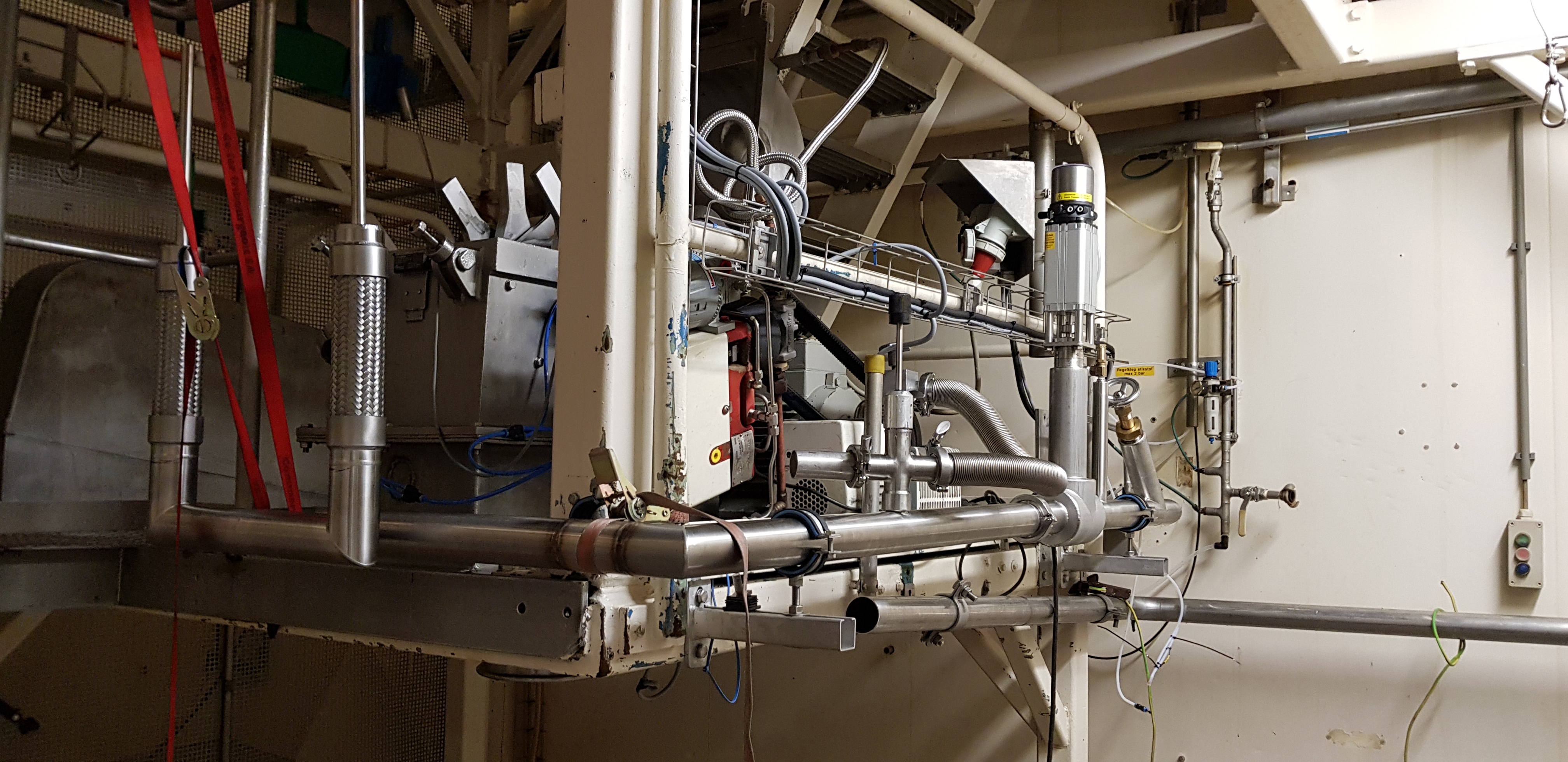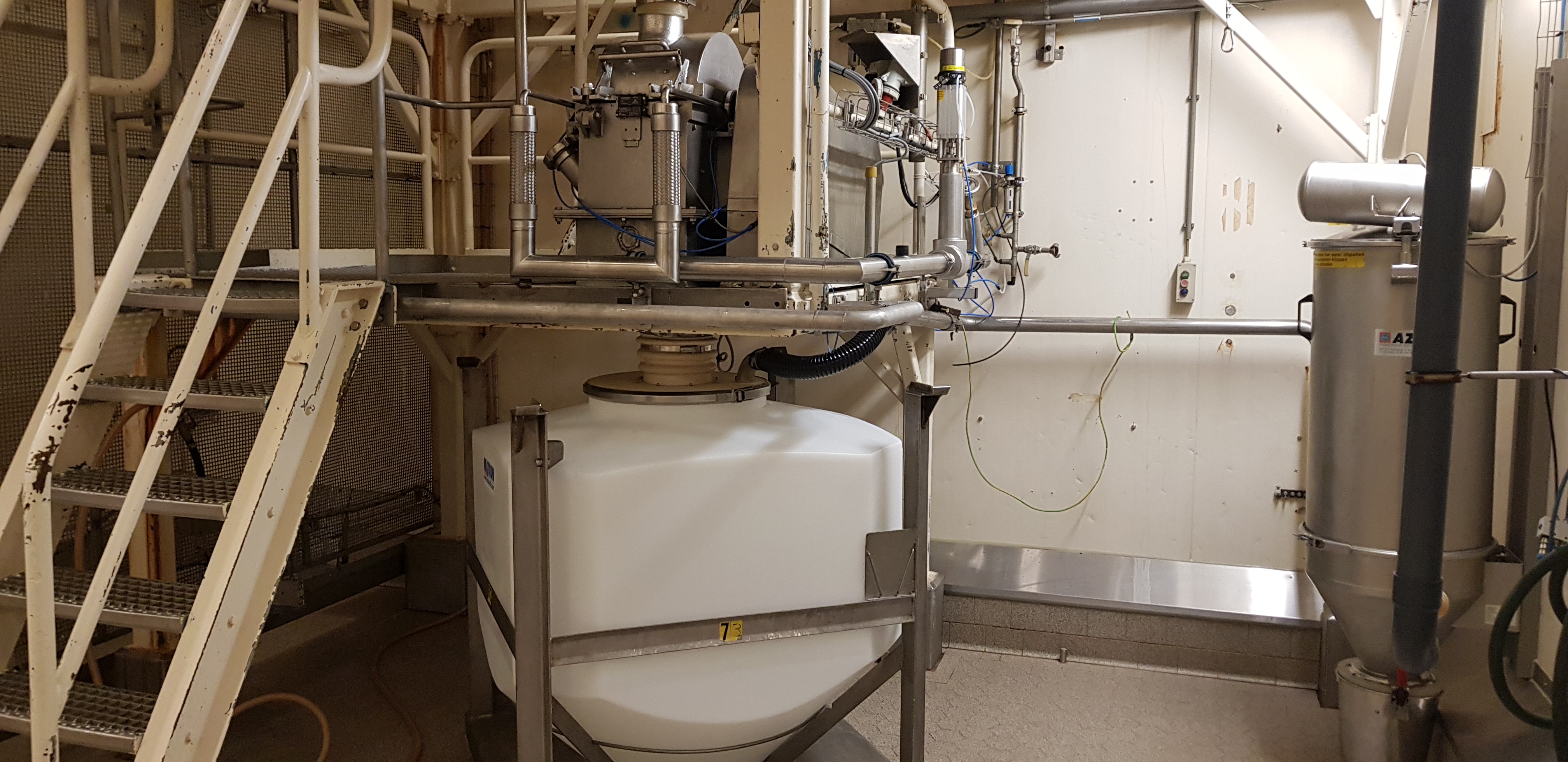Assignments
The client’s objective was to improve the efficiency of the system to reduce the use of liquid nitrogen for cooling a hammer mill while increasing safety.
A liquid nitrogen cooling system had to be implemented.
The client’s production could not be stopped during the installation of the liquid nitrogen system.
Since the cooling system was placed in an area with low humidity, condensation of the components was not allowed.
Solutions
Saen Engineering has been selected to provide the PID engineering, software engineering and project management for this project.
All components were vacuum insulated to prevent condensation.
A PID regulator in the PLC controls the liquid nitrogen dosing valve based on a temperature sensor in the hammer mill.
An oxygen measuring device is connected to the main valve of the nitrogen tank. If the oxygen level is too low, an evacuation alarm sounds and the main valve of the nitrogen tank closes.
Results
Saen Engineering involved Demaco for the installation and supply of the vacuum insulated components.
10% savings were made on liquid nitrogen.
Continuous regulation of liquid nitrogen at the hammer mill.
Continuous supervision of oxygen levels around the hammer mill.
Provided documentation, reports and operator training.
About the project
Liquid nitrogen is used in the hammer mill during the grinding process of
hydrolyzed vegetable proteins (HVP).
Project details
Confidential client
The Netherlands
~57.000



